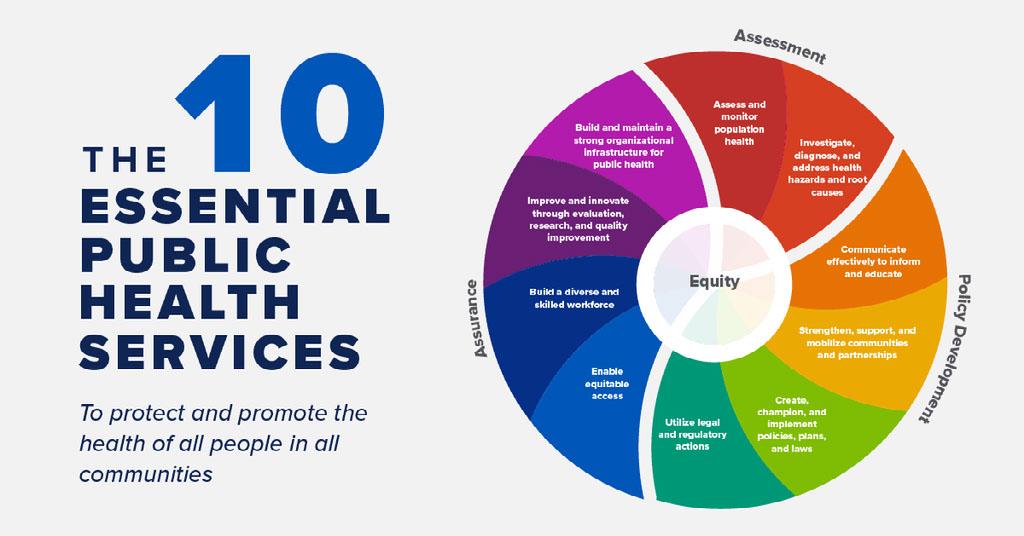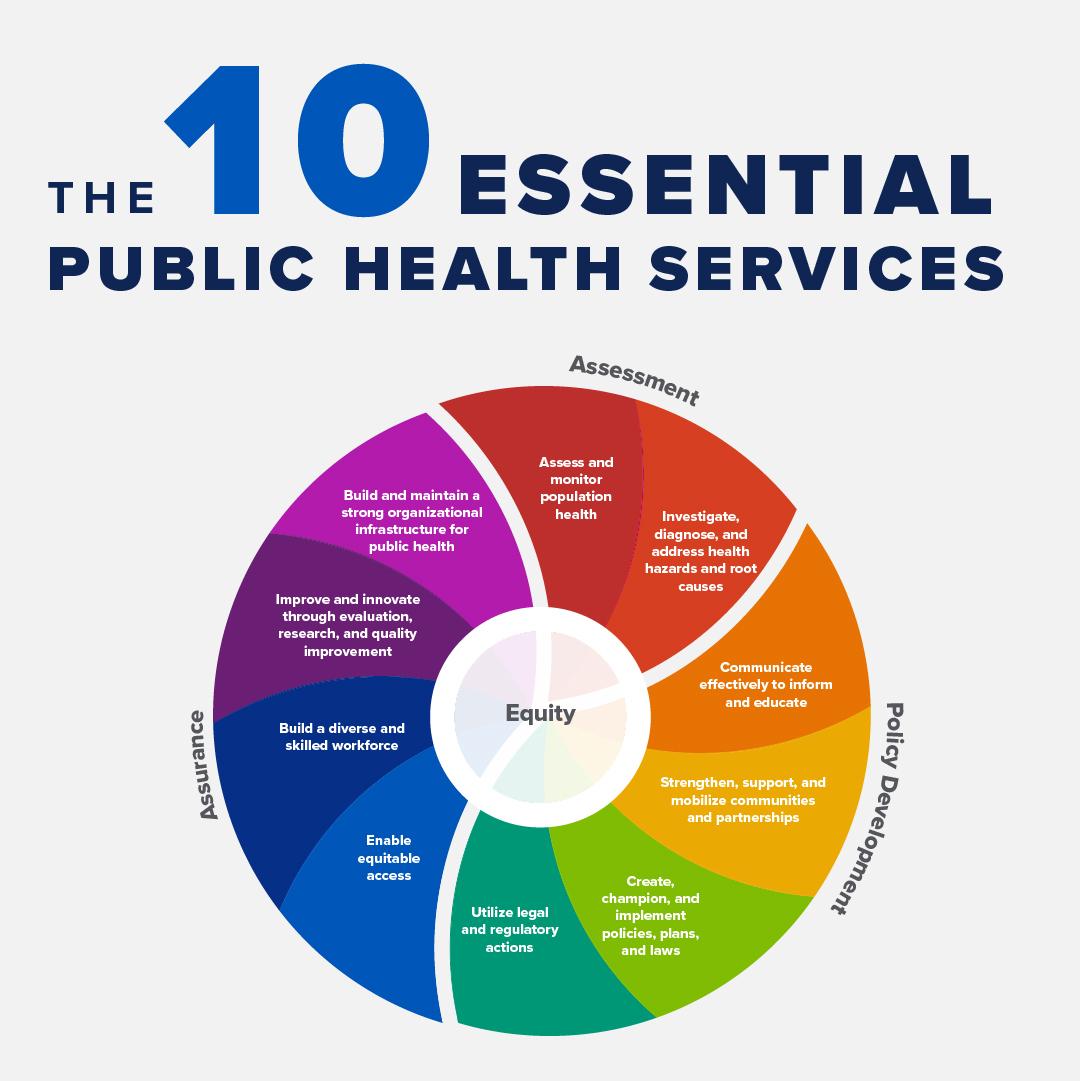

The importance of health equity and its effects on health outcomes are the foundations of a major update to the 10 Essential Public Health Services, which were released on September 9th at a virtual event hosted by the Public Health National Center for Innovations (PHNCI) and the de Beaumont Foundation.
First created in 1994, the 10 Essential Public Health Services have driven public health department accreditation, shaped curricula in schools, and given the field a concrete, collective public health roadmap.
“At a time when public health is more vital than ever before, we need to acknowledge and address the issues that profoundly affect health today and widen health disparities—like economic inequities, racism, and novel disease outbreaks,” said Jessica Fisher, Vice President of Strategic Initiatives at PHNCI. “This update to the10 Essential Public Health Services not only centers equity but acknowledges the importance of community voice and the different roles public health plays.”
To update the 10 Essential Public Health Services, PHNCI and the de Beaumont Foundation employed a crowdsourced, field-driven process that included in-person and virtual town halls, public comment periods, and a task force that included stakeholders from different areas of public health practice. School of Public Health Dean Boris Lushniak served on the task force and described what an honor it was for him to be part of it, given his long career as a public health practitioner.
The process began in November 2019 and incorporated input from more than 2,000 individual respondents from across the field of public health. PHNCI and the de Beaumont Foundation assembled a task force that included federal agencies; national, state and local public health organizations; academia; healthcare; philanthropies; and public health influencers.
“For decades the 10 Essential Public Health Services have served as our lighthouse, guiding the public health field toward milestone achievements,” said Katie Sellers, Vice President for Impact at the de Beaumont Foundation. “To bring public health into the future and tackle the challenges we are likely to face in the next five or 10 years, we need public health to improve health for all. Widespread adoption of the revised framework is a key next step in.”
Learn more about the 10 Essential Public Health Services and view a toolkit of resources to support adoption.
###
About the de Beaumont Foundation
The de Beaumont Foundation creates and invests in bold solutions that improve the health of communities across the country. Its mission is to advance policy, build partnerships, and strengthen public health to create communities where people can achieve their best possible health.
About the Public Health National Center for Innovations
Since 2015, PHNCI, a unit of the Public Health Accreditation Board, has aimed to identify, implement, and spread innovations in public health practice to help meet the health challenges of the 21st century in communities nationwide. PHNCI acts as a leader to coordinate and align national initiatives and share innovative ideas as communities transform to improve health outcomes. At the core of PHNCI’s current body of work are learning communities comprised of statewide coalitions, health departments, and other agencies implementing the systems transformations and innovations needed to improve public health practice and health outcomes.
Related Links: